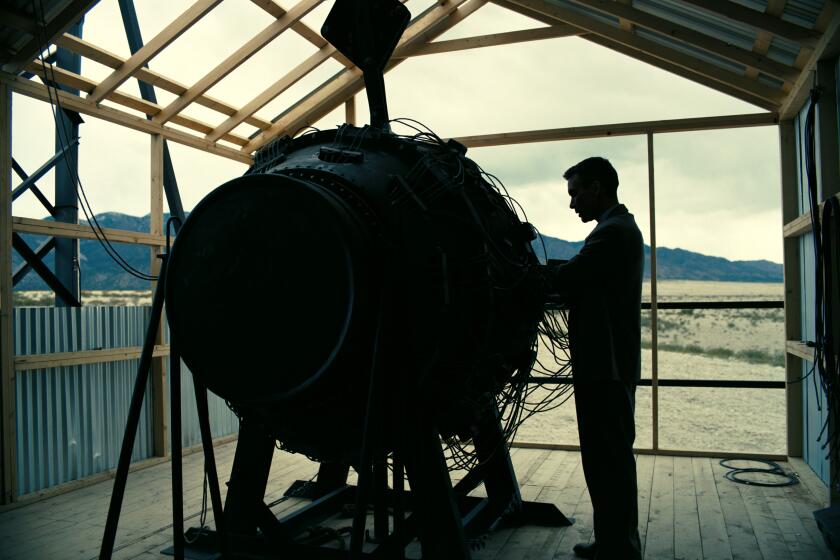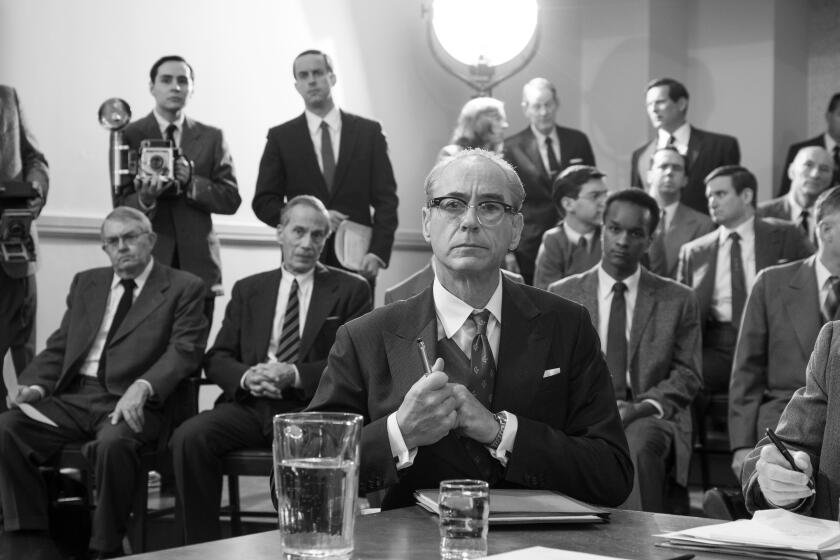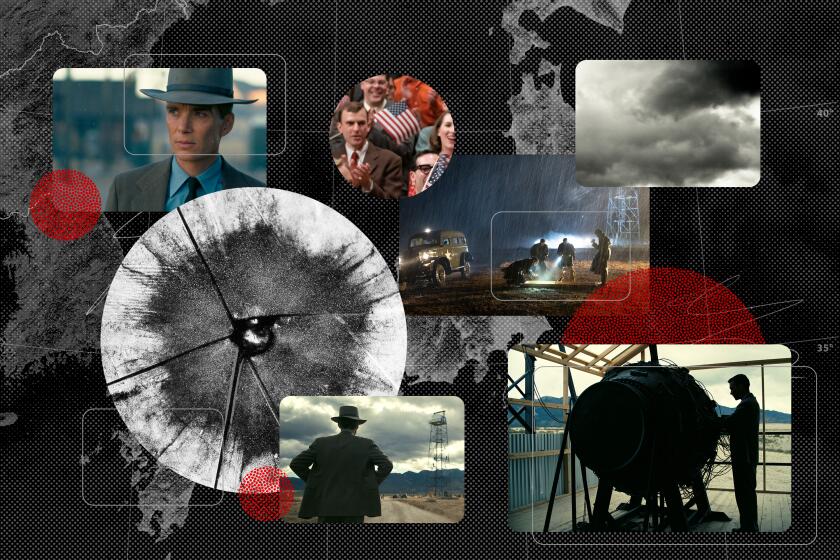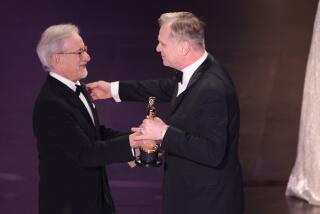Spike Lee says ‘Oppenheimer’ was ‘great.’ But he wishes it showed the Japanese victims
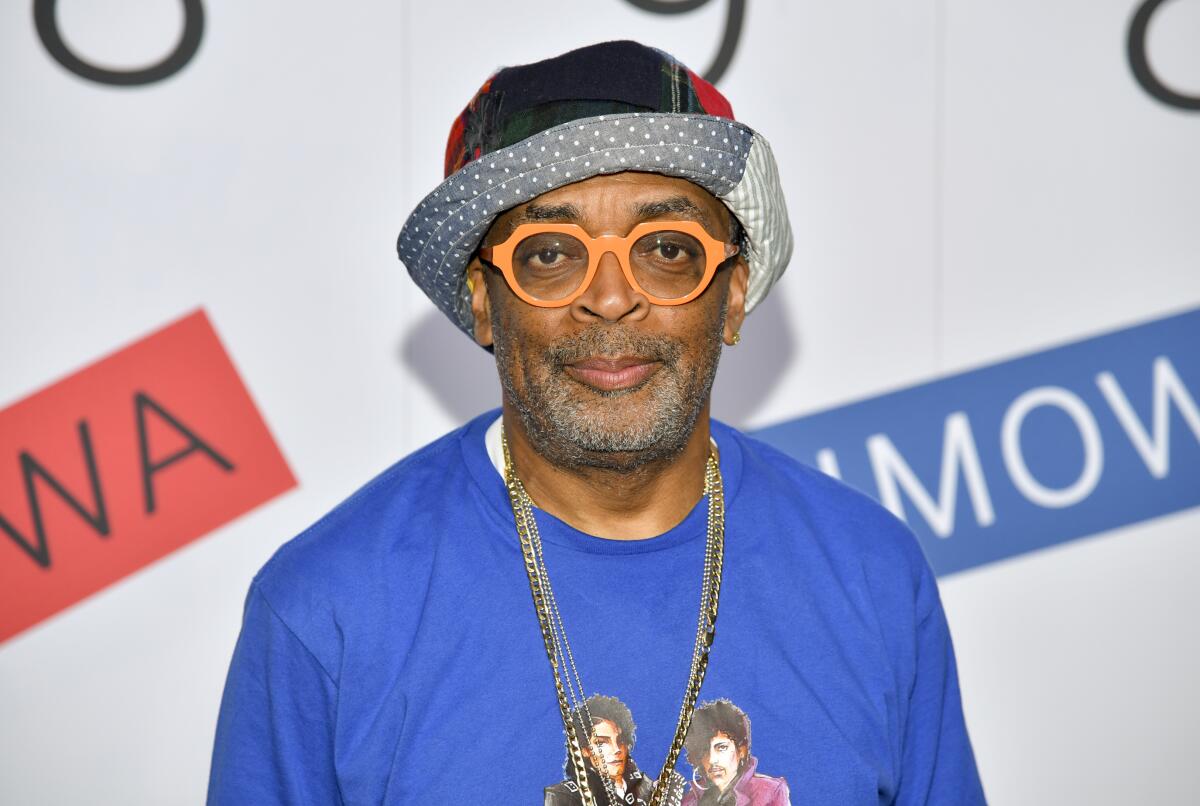
- Share via
Spike Lee says he has love for “massive filmmaker” Christopher Nolan, even though he’d like to make one change to “Oppenheimer.”
The “Do the Right Thing” and “She’s Gotta Have It” director reflected on the films that currently inspire him in a recent interview with the Washington Post. Speaking with the newspaper ahead of his Brooklyn Museum exhibit opening, Lee said Nolan’s sprawling biopic about J. Robert Oppenheimer was a “great film.”
Released in July, the three-hour “Oppenheimer” centers on the titular physicist (played by Cillian Murphy) as he creates the atomic bomb that brings World War II to an end. The film depicts Oppenheimer’s crumbling family life, his communist ties and the challenges of the Trinity test.
For historians, anti-nuclear advocates, Japanese Americans and others, Christopher Nolan’s film encourages viewers to flinch from the atrocity at its center.
Oppenheimer’s victims — the hundreds of thousands of Japanese civilians from Hiroshima and Nagasaki who died instantly when the United States dropped two atomic bombs in August 1945 — are never seen onscreen.
“Oppenheimer” has a run time of 180 minutes, yet Lee wishes it continued for just a tad longer.
“If it’s three hours, I would like to add some more minutes about what happened to the Japanese people,” he told the Washington Post. “People got vaporized. Many years later, people are radioactive. It’s not like he didn’t have power. He tells studios what to do.”
“Oppenheimer” director Christopher Nolan discusses his atomic bomb thriller and explains why he invited Robert Downey Jr. to join his all-star cast.
Nolan’s film was inspired by Kai Bird and Martin J. Sherwin’s biography “American Prometheus,” in which events are framed mainly through its subject’s eyes. In August, critics spoke with The Times about the drama’s glaring omission.
“So we get a movie where the Japanese people are relegated to basically a historical footnote,” said author Paul Ham. “As a reflection of Oppenheimer’s mind, the film cannot help but be morally half-formed.”
“‘Oppenheimer’ reinforces, in the guise of false nuance, the tired and ultimately distracting debate of whether or not the mass murder and the incineration of over 100,000 civilians in an instant was justified,” said Japanese American poet Brandon Shimoda.
Christopher Nolan’s movie has no interest in reducing the atomic bombings of Japan to a trivializing, exploitative spectacle, despite what some would want.
Some film critics, including The Times’ Justin Chang, argued that Nolan didn’t want to reduce the atomic bombings of Japan to a trivializing, exploitative spectacle.
“We are sometimes told, in matters of art and storytelling, that depiction is not endorsement; we are not reminded nearly as often that omission is not erasure,” he wrote in defense of the movie. “But because viewers of course cannot be trusted to know any history or muster any empathy on their own — and if anything unites those who criticize ‘Oppenheimer’ on representational grounds, it’s their reflexive assumption of the audience’s stupidity — anything that isn’t explicitly shown onscreen is denigrated as a dodge or an oversight, rather than a carefully considered decision.”
Lee said he would have preferred the film to end with the dropping of the bombs in Japan. He also clarified that his comments were not criticism. “This is all love,” he said.
The Oscar-winning filmmaker added: “I bet [Nolan] could tell me some things he would change about ‘Do the Right Thing’ and ‘Malcolm X.’”
More to Read
Only good movies
Get the Indie Focus newsletter, Mark Olsen's weekly guide to the world of cinema.
You may occasionally receive promotional content from the Los Angeles Times.
